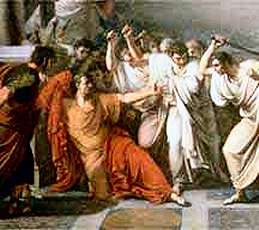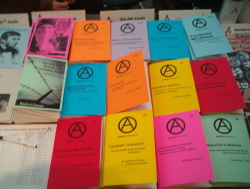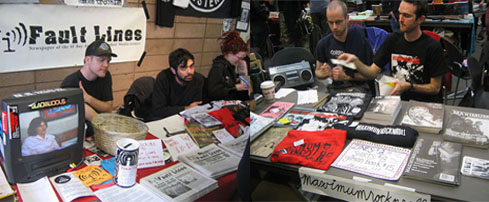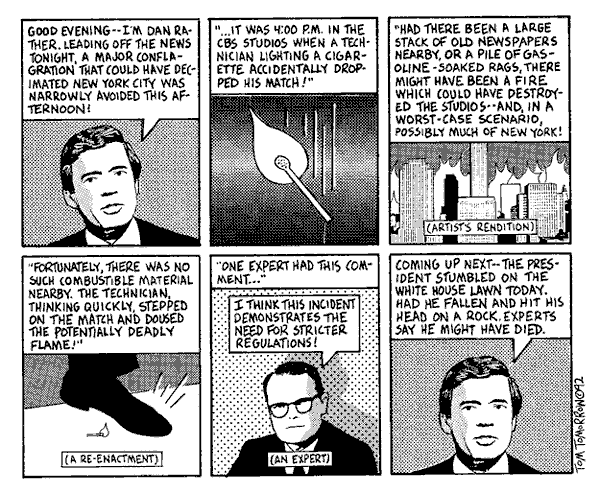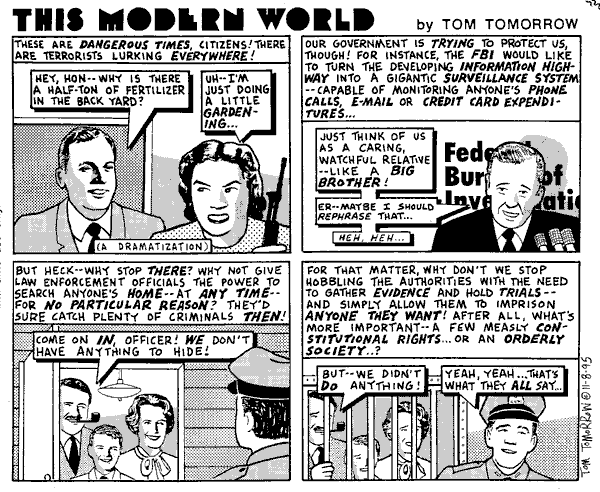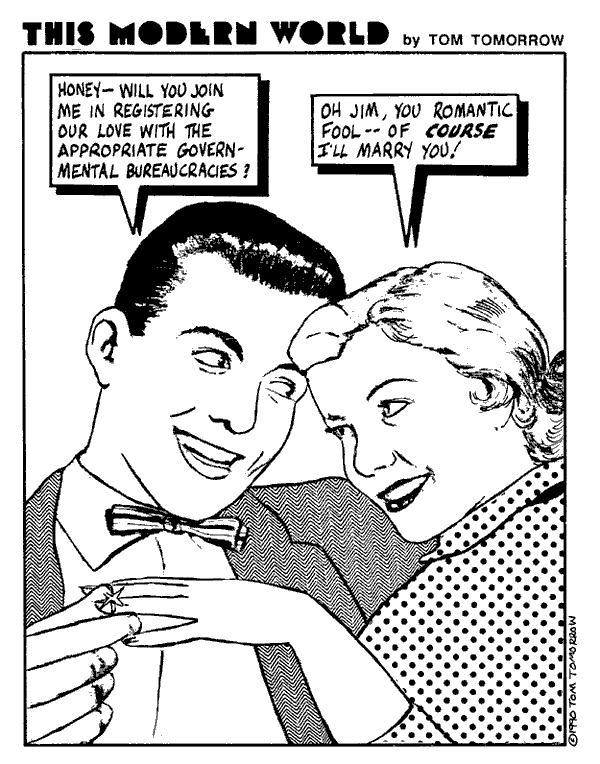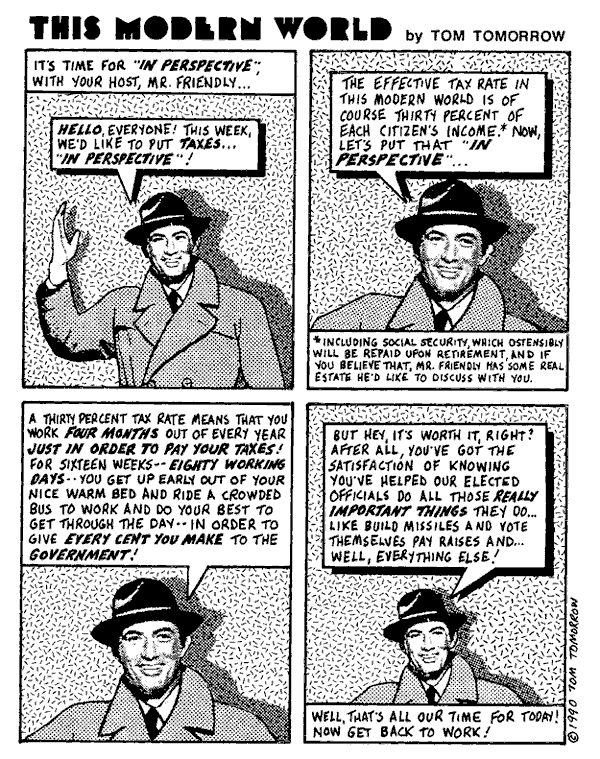Last year, a dangerous California street gang rolled up on 1,583 women and abducted them off the streets of San Francisco, tied them up, and held them against their will for days or weeks at a time. Some were robbed of money and then let go. Others were held in specially-constructed dungeons for as long as half a year before they were allowed to see the light of day again.
There has been little notice of this massive wave of violence against women in the malestream media, and little outcry, even though this same gang is still active, and is on track to abduct a similar number of women this year. Part of the reason for the neglect of this story is the fact that the 1,583 women were women in prostitution, or suspected of being in prostitution and all too many people (by which I mainly mean men, and by which I mainly mean pols, lawyers and cops) figure that assaults and disappearances are just business as usual for women in the sex trade, something that can be stamped N.H.I.
and shrugged off with a blink.
The other part of the reason is that the street gang’s colors are blue, and they all carry badges, and they call these abductions arrests,
the imprisonment pretrial detention
or a sentence,
and, even though the women they target and grab off the street through force or intimidation are just doing a job for willing customers, and threatening or attacking exactly no-one, these gangsters can count on the biggest racket of all — the protection racket known as the State — to get their back, to claim their violence is justified because it is carried out under color of The Law (as if that were somehow immune to question or challenge), and to put out well-paid mouthpieces who will insist, with a completely straight face, that when women in prostitution are being forcibly hauled off, arrested, cited, fined, jailed, and generally subjected to an attempt to forcibly destroy their livelihood, the people (mostly men) who are doing all this are actually doing it for the women’s own good.
In fact these rationalizations are no better than — really, no different from — the rationalizations that every abusive man in the world uses to pass off their controlling behavior and violence against their
women as if they were expressions of love. The male-dominated State is nothing more than an abusive sociopath writ large — one that can attack women by the thousands or by the millions, and one with armies and dungeons and trillions of dollars at its disposal.
As I said last December 17th:
Any serious commitment to freedom for, and an end to violence against, women, means a serious commitment to ending violence against women who work in the sex industry. All of it. Immediately. Now and forever.
And that means any kind of violence, whether rape, or assault, or robbery, or abduction, or confinement against her will, or murder. No matter who does it. Even if it is done by a john who imagines that paying for sex means he owns a woman's body. Even it is done by a cop or a prosecutor who calls the violence of an assault, restraint, and involuntary confinement an arrest
or a sentence
under the color of The Law. The Law has no more right to hurt or shove around a woman than anyone else does.
— GT 2007-12-17: December 17th is the International Day to End Violence Against Sex Workers
This November, eligible voters in San Francisco have an opportunity to call for peace on this front of the city government’s war against women:
San Francisco would become the first major U.S. city to decriminalize prostitution if
voters next month approve Proposition K, a measure that forbids local authorities from
investigating, arresting or prosecuting anyone for selling sex.
The ballot question technically would not legalize prostitution, since state law still
prohibits it, but the measure would eliminate the power of local law enforcement officials
to go after prostitutes.
Proponents say the measure will free up $11 million the police spend each year arresting
prostitutes and allow them to form collectives.
It will allow workers to organize for our rights and for our safety,
said Patricia West, 22, who said she has been selling sex for about a year by placing ads on the Internet. She moved to San Francisco in May from Texas to work on Proposition K.
Even in tolerant San Francisco, where the sadomasochism fair draws thousands of tourists and a pornographic video company is housed in a former armory, the measure faces an uphill battle, with much of the political establishment opposing it.
Some form of prostitution is legal in two states. Brothels are allowed in rural counties in Nevada. And Rhode Island permits the sale of sex behind closed doors between consenting adults, but it prohibits street prostitution and brothels.
. . .
Police made 1,583 prostitution arrests in 2007 and expect to make a similar number this year. But the district attorney’s office says most defendants are fined, placed in diversion programs or both. Fewer than 5 percent get prosecuted for solicitation, which is a misdemeanor punishable by up to six months in jail.
Proposition K has been endorsed by the local Democratic Party. But the mayor, the district attorney, the police department and much of the business community oppose the idea. They contend that it would increase street prostitution, allow pimps the run of neighborhoods and hamper the fight against sex trafficking, which would remain illegal because it involves forcing people into the sex trade.
. . .
If the proposal passes, we wouldn’t be able to investigate prostitution, and it’s going to be pretty difficult for us to locate these folks who are victims of trafficking otherwise,
said Capt. Al Pardini, head of the police department’s vice unit. It’s pretty rare that we get a call that says, I’m a victim of human trafficking
or I suspect human trafficking in my neighborhood.
— Associated Press, CNN (2008-10-21): San Francisco may become safe for prostitutes
While I certainly agree that coerced sex trafficking is an evil that needs to be seriously addressed, government officials and government cops like Captain Al Pardini, who claim to be concerned about the welfare of women forced into prostitution, refuse to talk about ways to address the systemic issues that stop trafficked women from being able to come forward and speak out or seek help about what’s been done to them (like, the State’s violence against undocumented immigrants and the threat of deportation; like, the police’s refusal to take women in prostitution seriously or treat them like human beings), and instead they apparently feel perfectly comfortable insisting that their difficulties in investigating sexual slavery somehow justify laws that grant police the power to force any woman suspected of being in prostitution off the street and into police detention, under police scrutiny, to imprison her, to force her to pay punitive fines, to conduct arbitrary police raids to go on fishing expeditions for trafficked women (e.g., at Asian massage parlors
) based on nothing other than racial profiling, and so forth, and so on, all in the name of facilitating the police’s attempts to investigate a different crime that affects some subset of the women being rousted up, shoved around, arrested, questioned, fined, imprisoned, and so on, and all in order to be able to force trafficked women into the protection
of the criminal law, with or without their consent. This amounts to nothing more than an argument for ensuring that the State maintains and exercises plenary police state powers over all women suspected of being sex workers, for no reason other than the alleged necessity of protecting some women in the sex industry from violence, while ignoring the many crimes that women in prostitution are never able to report to the police for fear of being arrested, and while ignoring the immense violence against all women in the sex industry that is committed by cops themselves, as part and parcel of this policy of arrest and detention. Nobody would ever accept this argument if it were directed against a class of people whose basic human rights malestream society is more accustomed to granting. (E.g., We need to be able to investigate the enslavement of migrant farmworkers; let’s outlaw farming!
We need to be able to investigate medical malpractice; let’s give the cops the power to arrest any doctor and charge them with a misdemeanor!
) It is only when it comes to people who powerful men regard as official non-persons that these kind of arguments get made — whether they are made against the safety and freedom of women in prostitution, or against the safety and freedom of immigrants without government papers or unauthorized drug dealers, in parallel arguments for government border laws and drug prohibition. That’s despicable, and it’s baffling to reason. If you have the chance, I’d strongly encourage you to vote Yes
on Prop. K, and No
on police state tactics and government violence against women.
I should say that, while I’ve given up completely on electoral politics as a primary vehicle for political change, measures like Prop. K — or Question 1 and Question 2 in Massachusetts, or State Question 2 in Nevada — are a good demonstration of why, if you’re going to put in for electoral politics, voter initiatives and direct votes on referendum questions offer a much better vehicle for doing it than throwing in for the personal political prospects of some favored (or least-worst) candidate for the elective oligarchy that is so fatuously described as our democracy.
Proposition K will have a hard time passing — a similar initiative was defeated in Berkeley recently by a 2-to-1 margin — but the mere fact that completely decriminalizing prostitution in a major U.S. city has entered into the political debate, that it is being considered for passage (or. mutatis mutandis, repealing the income tax in one of the highest-tax states in the U.S., or decriminalizing possession of small amounts of marijuana, or banning all eminent domain seizures for transfer to private developers
in a state with one of the most intensely state-capitalist economies in the U.S.) is an achievement in itself, compared to the way in which representative
politics completely smothers all serious politics, by choking off any and all political issues outside of the established bipartisan government consensus on the acceptable range of debate. Voting libertarians take note: if you’re going to spend your time on this stuff, there’s not much hope for making a difference this way, but there’s some, and that’s better than I can say for personality politics and representative
elective oligarchy.
See also:
